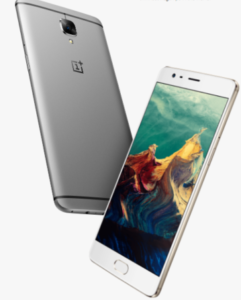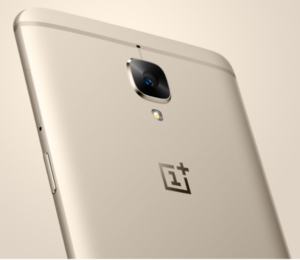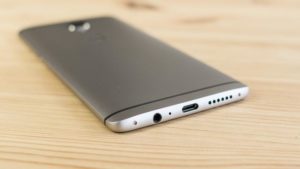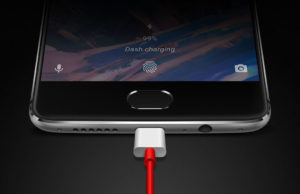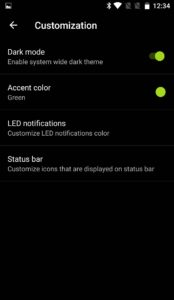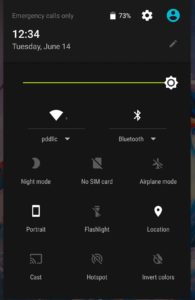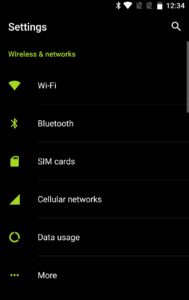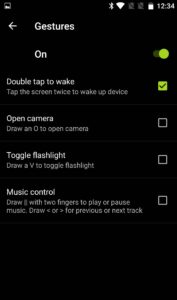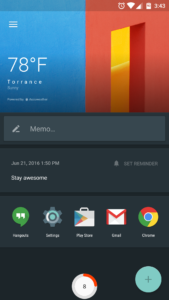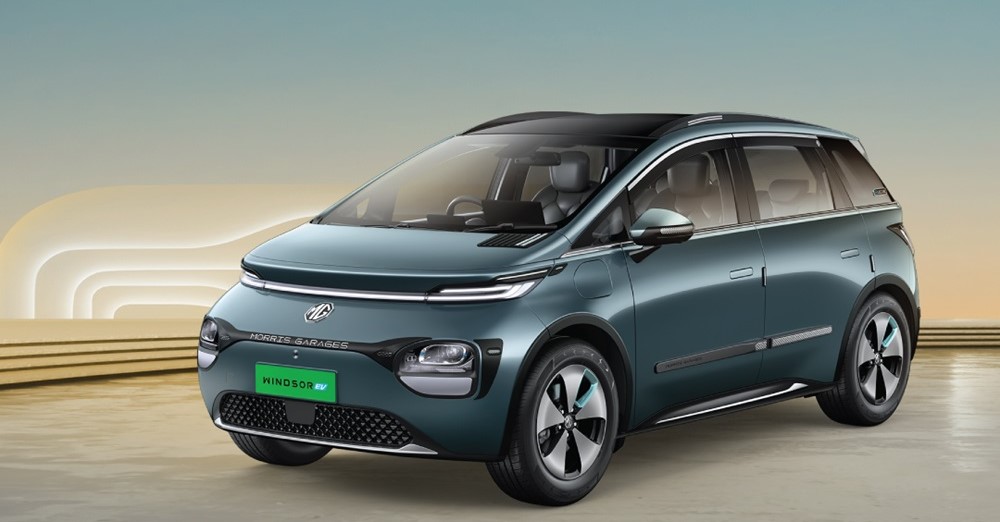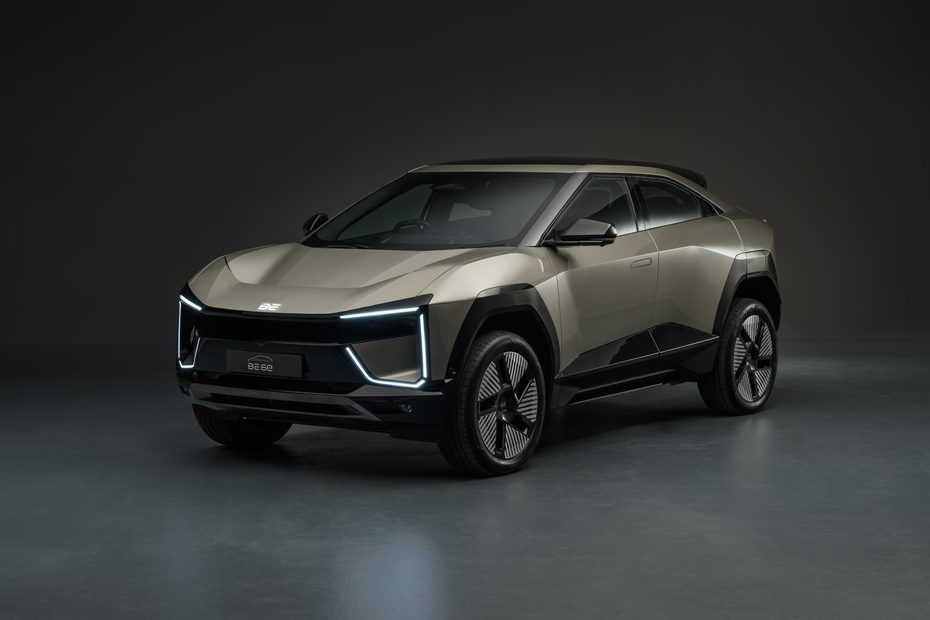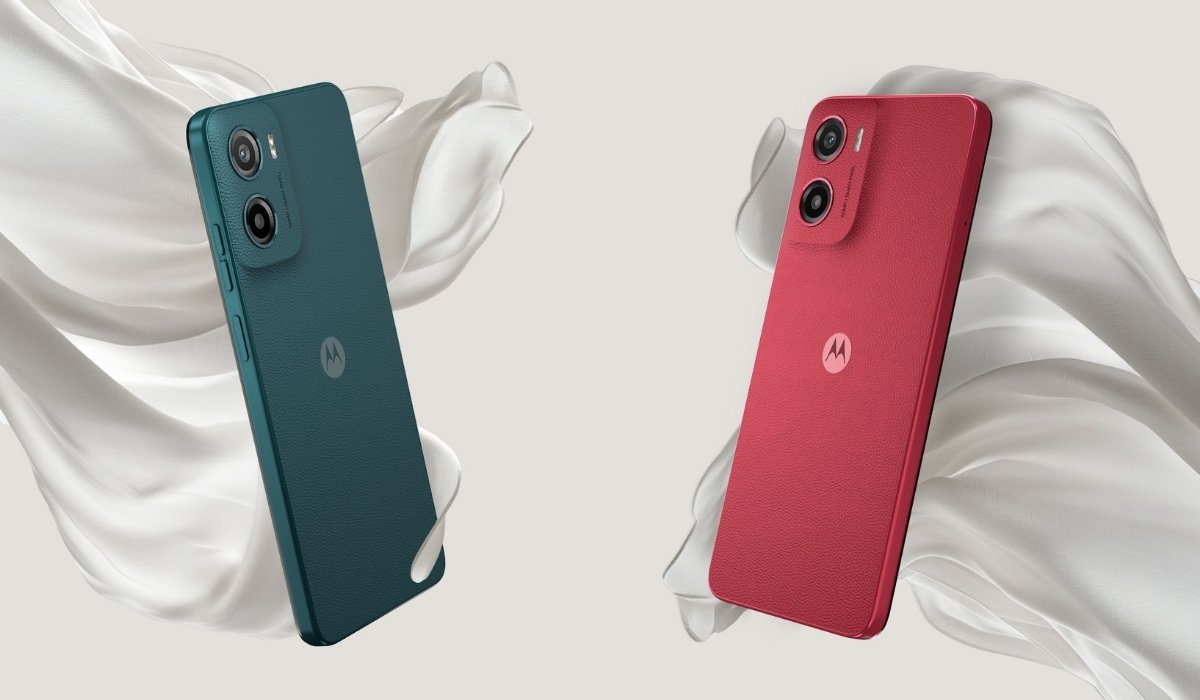OnePlus, the creators of flagship killers are no longer strangers rather they produce one of the most popular smartphones each year. They kicked off their campaign with the OnePlus One and since then they have never settled, we get to see one of the best smartphones from them each year. Still, OnePlus is yet to establish themselves as a brand in Nepal. And it is not surprising that most of the Nepalese do not even know they exist let alone their top-notch products. Personally, I am big fan of OnePlus, it’s fascinating how they get everything just right with their products. They are all about best performance, top quality and reasonable price packed in a simple design. Basically, OnePlus 3 is a perfect flagship phone made for Nepali users.
There’s always a massive hype about the OnePlus’s upcoming smartphones and similar was the case when OnePlus 3 was released back in June 2016. OnePlus maintains its policy of best performance, top quality and reasonable price with the OnePlus 3. Though there are some major changes to its design, OnePlus 3 still looks good and smashes the spec game with the latest Snapdragon 820 SoC and magnificent 6GB of RAM. Well, here’s my full review of the OnePlus 3.
DESIGN
OnePlus 3 has a revamped design compared to its predecessors OnePlus One and the OnePlus Two. Both the predecessors were bulky and thick whereas OnePlus 3 is sleek, slim and smooth. The phone is pretty big as it carries a 5.5 inches Optic AMOLED display and also it is pretty thin at just 7.3mm. OnePlus abandons its iconic sandstone back as OnePlus 3 features a full metal unibody with a premium space grade aluminum alloy.
The edges are smooth and slightly curved. The black bands on the back are inspired from HTC whereas the speaker grills, 3.5mm headphone jack and the USB-type C located at the bottom makes it look like an iPhone. Volume rockers are on the left side below the alert slider. Similarly, the power button sits below the sim slot on the right side. The physical home button works as a fingerprint sensor which is flanked by capacitive keys.
One of its design flaws is the camera bump on the back but it’s nothing to worry about. You can use style swap covers to reduce the camera bump. The phone feels slippery due to its smooth back and some users may feel difficult to reach all the parts of the phone with a single hand as it is quite tall. Even though the ergonomics of the device is pretty impressive, often I pressed on other buttons while using the alert slider. On overall OnePlus 3 has a premium design but it follows the design philosophy of 2016 flagship devices rather than implementing something new.
DISPLAY
Most of the 2016 flagship phones offer a QHD screen and many might have hoped OnePlus to follow the same but OnePlus 3 sticks with 5.5 inches Full-HD panel. With the AMOLED display, the phone offers brighter and punchier colors – the screen is vivid and vibrant; making media experience very enjoyable. Though it cannot compete with Samsung’s Super-AMOLED displays, i found the display good enough at 401ppi. Viewing angles are good and sunlight visibility is decent as OnePlus 3 uses a dual-polarizing layer. Also, it supports ambient display that can be triggered by waving the hand near the proximity sensor. Under display settings, you can adjust the color warmth to your likeness. And there’s a night mode which increases the color warmth, I found it very useful while using the phone during dark conditions especially when i was reading something.
PERFORMANCE
As always OnePlus never compromises with the performance of their products, therefore it is one of the best flagship phones in the performance department. OnePlus 3 comes with one of the best specifications in the market and offers them at a lower price than most of the other flagships out there.
Inside the metal body is the Snapdragon 820 processor that comes with an Adreno 530 GPU and 6GB of RAM. I used this phone for almost a month and I never found lags or stutters- with 6GB of RAM, there’s plenty of room for applications to run in. I ran multiple high texture games like Modern Combat 5 and Nova 3; the gameplay was smooth as silk. Believe me, when you’re using this phone you’ll actually feel happy that everything is running so smooth. Daily tasks like browsing apps, web pages, and media consumption are just too easy for OnePlus 3. Not only these but it breezes through intensive games.
OnePlus 3 did slightly heat up while playing games for more than an hour but it’s nothing to worry about. The phone cools down instantly after you finish playing games.
HARDWARE
In terms of hardware, OnePlus 3 added an NFC this time which was missing in their previous flagships. NFC is widely used as a payment system nowadays, but it is not relevant in Nepal.
OnePlus 3 has a 64GB of internal storage and has a dual-SIM capability. It would have been great if there were variants with higher storage capacity- one of those things OnePlus need to improve on.
With a single speaker on the bottom, the audio experience is just above average but not premium. The speaker is loud but there’s not much quality in the sound, which is as expected from a single speaker. But, audio through a good pair of headphone is definitely premium. It even outperforms Samsung’s S7 in this department.
One of the best thing about this phone is that its fingerprint sensor is very responsive. The home button works as the fingerprint sensor and it can unlock the device without waking the phone. It is one of the fastest fingerprint sensors among the flagship phones. I never faced any issue with the fingerprint while using the phone, it is as quick as it can be.
The alert slider has a texture that enables a good grip. With this, you can quickly switch between various notifications modes (all notifications, priority notifications, and no notifications).
OnePlus 3 comes with a 3000mAh non-removable battery and it comes with OnePlus’s dash charging. For normal usage, the phone would last a day with 15-20% of battery still left in the tank. Continuous 3 hours of playing games, browsing on Wi-Fi for more than 2 hours and some normal stuffs required charging more than once a day. But OnePlus 3 comes with dash-charging and it charges the device up to 60% in 30-35 minutes so you can use your phone without having to worry about the battery wear. These days having a big battery won’t be much of an advantage if the phone doesn’t support quick charging- it’s a nice play from OnePlus to introduce the dash charging in the OnePlus 3.
SPECIFICATION
- Display – 5.5 inches OPTIC AMOLED display (1920*1080 resolution), 401 ppi, Gorilla glass 4
- Chipset – Qualcomm Snapdragon 820
- CPU – Quadcore (kyro 2x 2.2 Ghz; 2x 1.6 Ghz)
- GPU – Adreno 530
- RAM – 6GB
- Platform – Android OS v6.0.1, Oxygen OS
- Memory – 64GB internal storage, non-expandable
- Camera – Rear camera: 16MP Sony IMX 298 sensor with PDAF, 1.12μm, OIS, EIS, f/2.0
Front camera: 8MP Sony IMX 179 sensor with 1.4μm, EIS, f/2.0 - Battery – Non-Removable 3000 mAh battery, Dash charging
- Ports – USB Type-C, Dual nano-SIM slot, 3.5 mm audio jack
- NFC – Yes
- Sensors – Fingerprint, Accelerometer, Gyroscope, Proximity, Ambient Light and Electronic Compass
CAMERA
REAR CAMERA
OnePlus 3 features a 16MP rear sensor with f/2.0 aperture, OIS, and phase detection autofocus. One thing everyone should know is that the megapixel of a camera does not define its picture quality. The camera has always been the downside of the OnePlus’s flagship devices. I did not expect a top-notch performance from OnePlus 3’s 16MP camera and it does work around my expectation. Though, it is certainly not bad.
The camera does a decent job under good lighting. And like most of the phones, it amplifies the exposure and saturates the images slightly. Under artificial lighting, the pictures are good but still, the pictures look dull and noisy.
There’s an HDR mode which increases the exposure and contrast slightly, though I did not notice a big difference between normal and HDR mode.
I was not expecting a good low light performance but considering the price tag it does a decent job in low light as well. Like most of the phones, it faces problem in low light, where slower shutter speed compromise for the exposure.
I was experimenting with the manual mode and in dark conditions longer shutter speeds would result in blurred photos due to the shakiness. The photo below was taken under artificial low light setting and as you can see the photo contains some noise and looks a bit blur.
FRONT CAMERA
The 8MP front camera is above average- it does a very good job under well-lit settings but it is nothing special.
Talking about videos, the OIS helps to stabilize the footage but it doesn’t work so well. You’ll need a steady pair of hands to capture a clean footage.
The camera app is very simple with various shooting modes and simplified interface. Manual mode in the camera app lets you manually manage ISO, shutter speed, and white balance through a simple slider.
One of the interesting features in manual mode is the ability to first set the exposure point and then drag the pointer to find a proper focus point. You have the option to capture slow motion and time-lapse videos as well as 4k videos. Personally, I am not impressed with the 4k videos OnePlus 3 captured but slow motion videos were good enough. Check out our video review to find out more details about the camera.
SOFTWARE
OnePlus 3 runs on OnePlus’s trademark Oxygen OS based on Android Marshmallow with some modification and extra features. Oxygen OS looks similar to stock android but it has some awesome features to show.
Personally, I love the dark mode- it’s a great feature for those who want dark themes for their android phones. Dark mode enables the accent colors that can be used to customize the interface. And also the dark mode helps to reduce battery usage as it uses dark colors wherever possible.
It also includes smart features like double tap on the power button to open the camera app. Except these there are lots of custom actions you can assign to buttons and capactive keys.The Shelf returns in this iteration of the OnePlus, you can add some widget and create memos on it.
Oxygen OS is really one of the best Android OS out there.
Final things I would like to say…
In Nepal, people do not know much about the OnePlus3. People do not trust Chinese brands and they think Samsung, HTC, and other popular brands are the only viable option. For those who think similarly, I urge you to try out Chinese brands and find out that there are lots of Chinese smartphones out there that are better than the smartphones offered by established brands like Samsung, Sony, and others in the same price bracket.
OnePlus 3 is priced at 399$ internationally but it costs Rs. 49,999 here in Nepal. The price of smartphones tends to differ from international prices due to various import taxes but even for a staggering price of Rs.49,999 OnePlus 3 is a beast of a device to miss out on. It’s on par with most recent flagship phones when it comes to performance and it is much cheaper. Though, you might want to get other phones if you want to click some outstanding photos- Camera is one of the departments where OnePlus 3 fails to shine compared to other flagships.
Disappointingly OnePlus drops its original design but it’s a relief that there is no invite system anymore. OnePlus 3 seemingly hits all the right spots making it a “flagship killer”. At last, putting everything aside it is the best flagship device for a mid-range price.
For me, it is simply the best phone I would buy for the price tag.
Watch the OnePlus 3 review video for more:
-
MG Windsor EV Launching in Nepal This MayHIGHLIGHTS MG Windsor EV is a Compact Utility Vehicle (CUV). Windsor EV is powered by…
-
Mahindra BE 6: Mahindra’s Engineering Might Unleashed, Expected in Nepal by 2025HIGHLIGHTS Mahindra BE 6 is an unorthodox electric SUV. BE 6 is available in Pack…
-
Motorola Moto G05 Finally Arrives in Nepal — A Budget Phone from a Trusted Brand!HIGHLIGHTS The Motorola Moto G05 price in Nepal is Rs. 12,999 (4/64GB). It has MediaTek…




